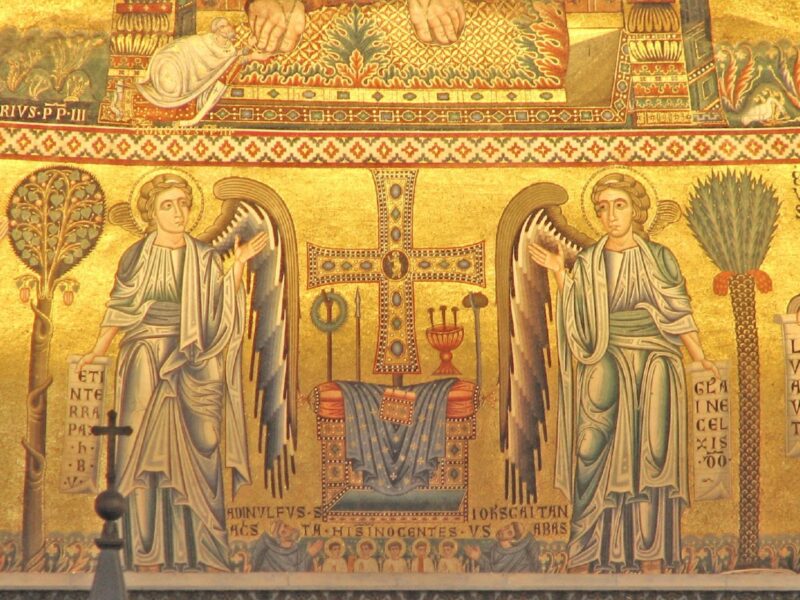
Name Calling
Solemnity of the Birth of St John the Baptist | Fr Thomas Skeats explains the significance of the name given by God to St John.
“He will be called John” (Luke 1:60). Giving someone a name normally expresses a special closeness to them. Parents name their children, spouses sometimes call one another pet names, and close friends may give one another nicknames. Scripture is full of instances of God naming people, or even changing their name. Abram is renamed Abraham to remind him of God’s promise that he is to be “the father of many nations”. Simon is renamed Peter because he is to be “the rock” upon which the Lord would establish his new people.
In the case of John the Baptist, God names him before he is born. This explains Elizabeth’s insistence that her son is to be called John, rather than Zechariah after his father. It recalls the moment when the angel Gabriel appeared to Zechariah to inform him that his aged wife would give birth to a child and instructed him as to what the child’s name would be (Luke 1:13).
God changes a person’s name or gives them a new name to express his closeness to them and to indicate the task he entrusts to them in salvation history. John in Hebrew means something like “God is gracious” or “God gives grace”.
John’s task was to herald the coming of Christ by preaching a baptism of repentance for the forgiveness of sins (Acts 13:24). “Reform your lives” was his message. John challenges us to believe that change is possible, that we can reform, that our defects, no matter how deeply ingrained, need not permanently define who we are. “It is never too late to change” is John’s encouraging message.
Men and women who enter religious life often take a new name to express this conviction that a new start is always possible. John’s name, meaning “God is gracious”, is a reminder that no one is ever beyond the reach of God’s grace. It is grace that makes change in our lives possible.
John is often seen as an end times prophets. His task was to announce that something new was about to happen that would change the world forever. A new creation was about to be inaugurated and God is graciously inviting people to align themselves with this new revolutionary moment. John announces that the one who is to come will baptise with the Holy Spirit. The Spirit is the power of this new age that will blow away all that is petty and ignoble in us, all that can weigh us down or oppress us, in order to free us for God’s new world.
In this new creation we are all to be given a new name. “I no longer call you servants” Jesus tells his disciples, “I call you friends”. Because of our new closeness to God, he calls us by a new name. This name indicates not only his promise to us that we are to share his life in the new kingdom, it also makes clear our present task to identify with him, to share his message, and to avail ourselves of the gift of his grace so that we might grow more and more in his likeness.
The apostle Paul was so profoundly united to Christ by grace that he was able to exclaim “I no longer live, but Christ lives in me”. It was as though he had taken on yet another new name: alter Christus. In fact, the Book of Revelation informs us that when we eventually see God face to face it will be his name that is written on our foreheads.
So John the Baptist comes into the world to announce truly good news. But he did not seek to be someone who set out to please the crowd or win popularity with his words. He did not hesitate to expose the immorality and hypocrisy of those in charge and to die a martyr’s death rather than compromise his convictions. His was a difficult message and his lifestyle was as austere as his message.
Perhaps, like some of the other prophets before him, he had moments of doubt and hesitation, perhaps he was fearful. But the grace of God – the free gift of grace which it was his task to announce and which was heralded in his divinely-given name John “God gives grace” – was sufficient for him to fulfil his mission.
Readings: Isa 49:1-6 | Acts 13:22-26 | Luke 1:57-66, 80
Photograph by Fr Lawrence Lew OP of a window in St Giles Cathedral, Edinburgh.


